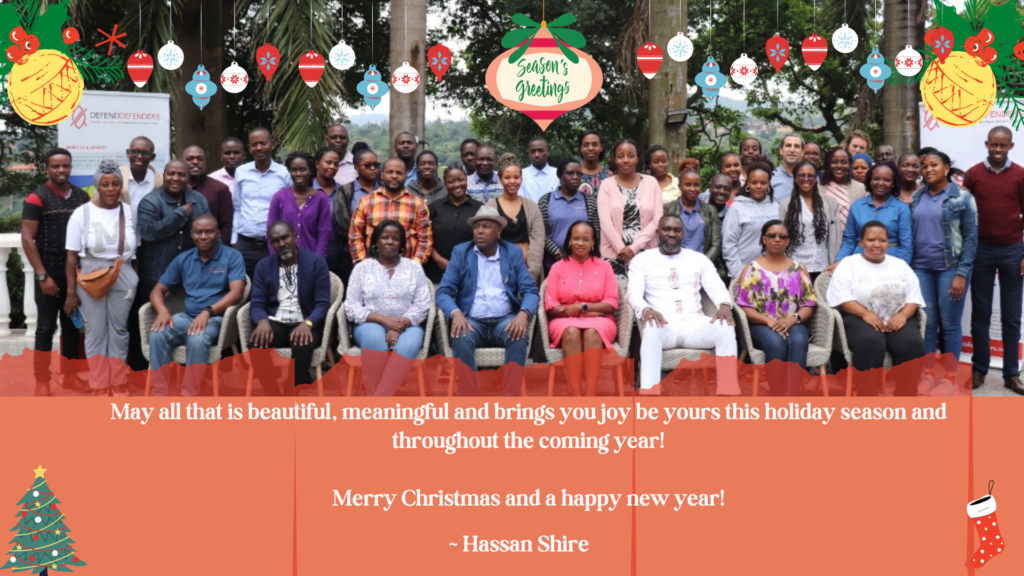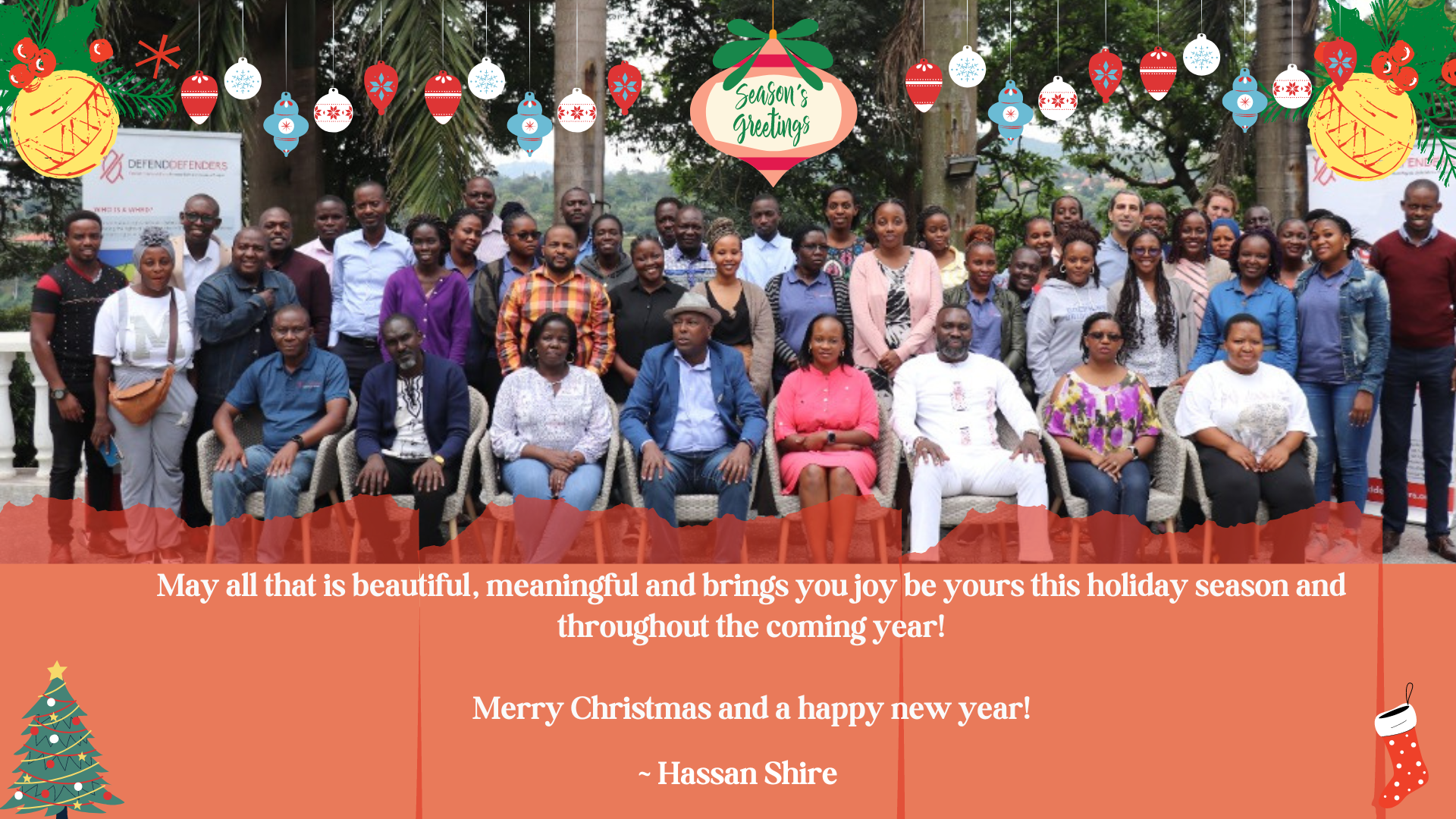Dear friends, colleague human rights defenders,
Greetings from DefendDefenders and AfricanDefenders.
As we wrap up 2022, it is important to reflect and evaluate our efforts towards strengthening the safety and resilience of human rights defenders (HRDs) in Africa to enable us strategise better for 2023. This year, the world transitioned from a crisis phase of the Covid 19 pandemic to a recovery one. This meant a full resumption of all our planned activities and initiatives.
Regrettably, Africa faces increasing poverty, frequent droughts, famine, violence, political instability, and insecurity, all of which, in one way or another, contribute to the shrinking of civic space. After the Sahel region, the East and Horn of Africa is now one of the biggest epicenters of conflicts on the continent, with inter-communal conflict raging in Sudan and South Sudan, a humanitarian crisis in Ethiopia’s region of Tigray, and renewed terrorist offensives in Somalia. Inevitably, HRDs have been caught in the middle of these conflicts, as they try to shed light on the attendant human rights violations. This year for example, Ethiopia was ranked alongside Eritrea as the two worst jailors of journalists in Sub-Saharan Africa by the Committee to Protect Journalists.
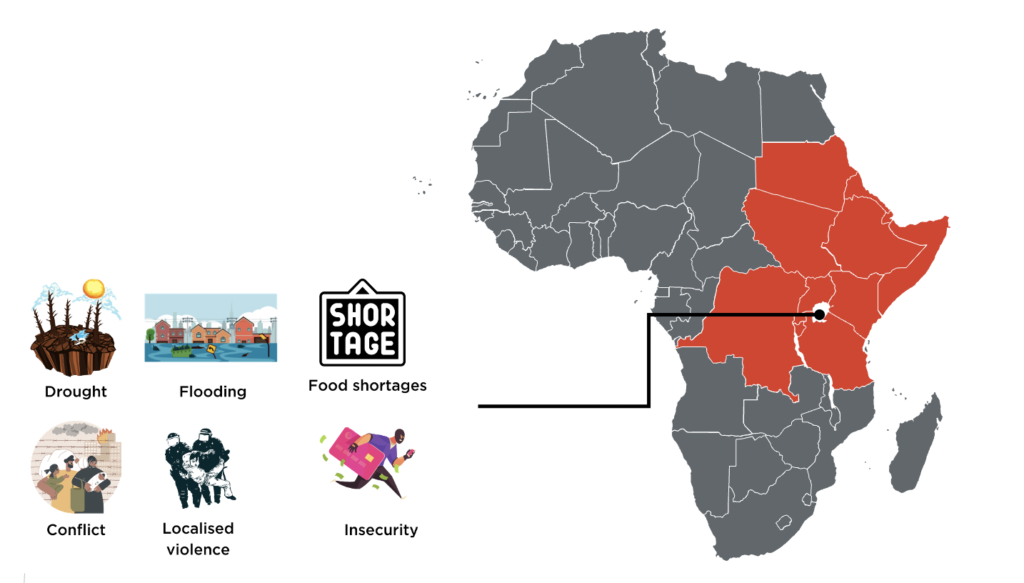
Conflicts are particularly harsh on minority HRDs and other disadvantaged groups, and this year, we purposed to investigate and report about minority HRD groups in the region. In April, we launched a report on the situation of HRDs with disabilities in conflict areas, which showed that regardless of their geographical location, HRDs with disabilities face a common set of attitudinal, environmental, and institutional challenges by virtue of their disability, which are compounded and magnified during conflict situations. Last week, in Tanzania, we launched another report on the situation of youth HRDs in the East and Horn of Africa, which goes to great lengths to show the persistent social and institutional biases that continue to enable human rights violations especially against young women human rights defenders (WHRDs) and other vulnerable youth HRDs.
These persistent violations are particularly concerning because they compound an already fragile situation for HRDs brought about by the COVID-19 pandemic, in which HRDs were targeted for daring to question blank-cheque lockdowns by governments and to expose human rights abuses that accompanied their enforcement.
We covered the resultant backlash on HRDs extensively in our White Paper on the same subject.
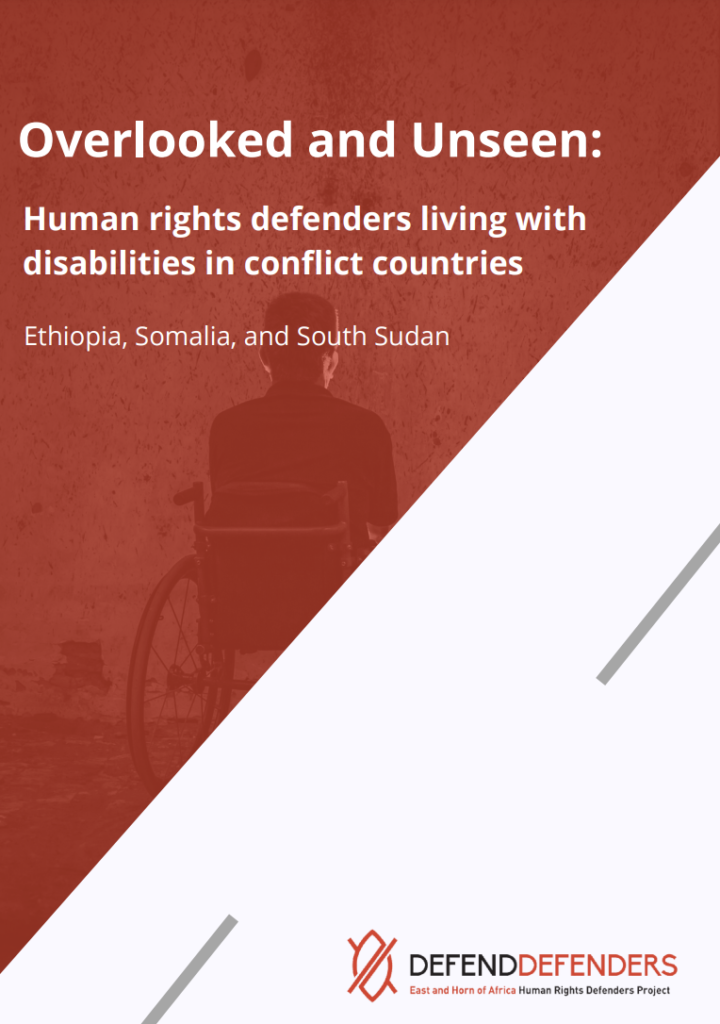
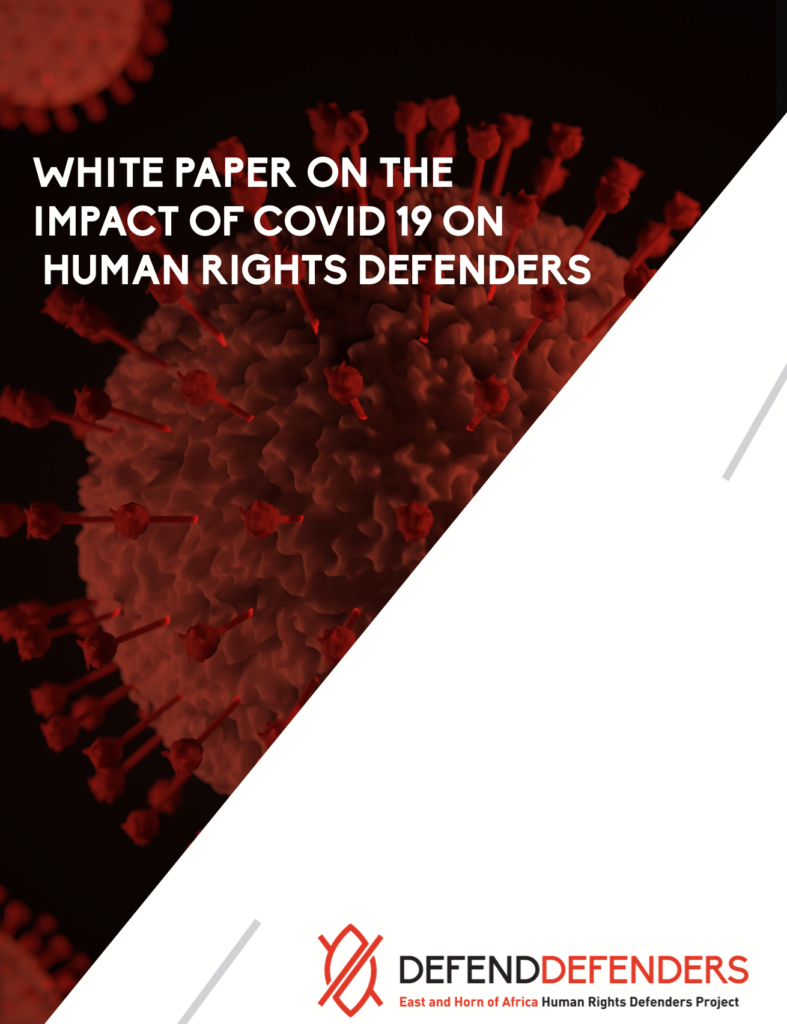
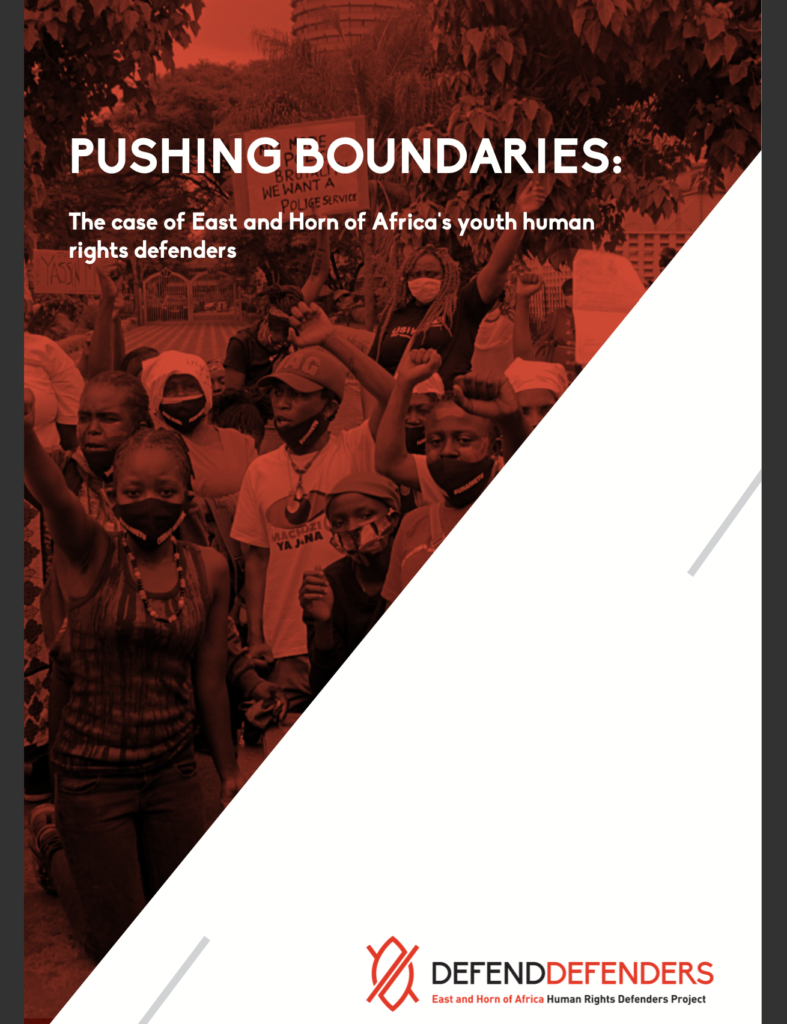
The findings from our research and our other publications are what continues to form the foundation of our advocacy at regional and international human rights mechanisms. This year, we resumed in-person engagements at both the UN Human Rights Council (UNHRC) and at the African Commission on Human and People’s Rights (ACHPR).
At the UNHRC, we successfully advocated for a resolution on South Sudan at the 49th session, on Sudan and Eritrea at the 50th session, and on Ethiopia, Burundi and Somalia at the 51st session. The six are some of our focus countries that continue to be dogged by some form of conflict or another, and the resolutions will ensure that their respective human rights situations remain on the UNHRC’s radar for the foreseeable future. To further make our advocacy at the UNHRC more targeted and thus more effective going forward, we tracked and analyzed the voting patterns of the Council’s African members since 2006, and came up with a report: Between Principal and Pragmatism: How African states vote at the UN Human Rights Council.
At the 71st session of the ACHPR, DefendDefenders and AfricanDefenders made seven statements, ranging from the status of human rights and rule of law in the East and Horn of Africa, the status of the rights of women and freedom of expression on the continent, and on the creeping judicial persecution of HRDs. At the 73rd session of the ACHPR held in Banjul, DefendDefenders and AfricanDefenders made eight statements, among which we jointly called upon the Commission to be more assertive in demanding that member countries enforce its resolutions.
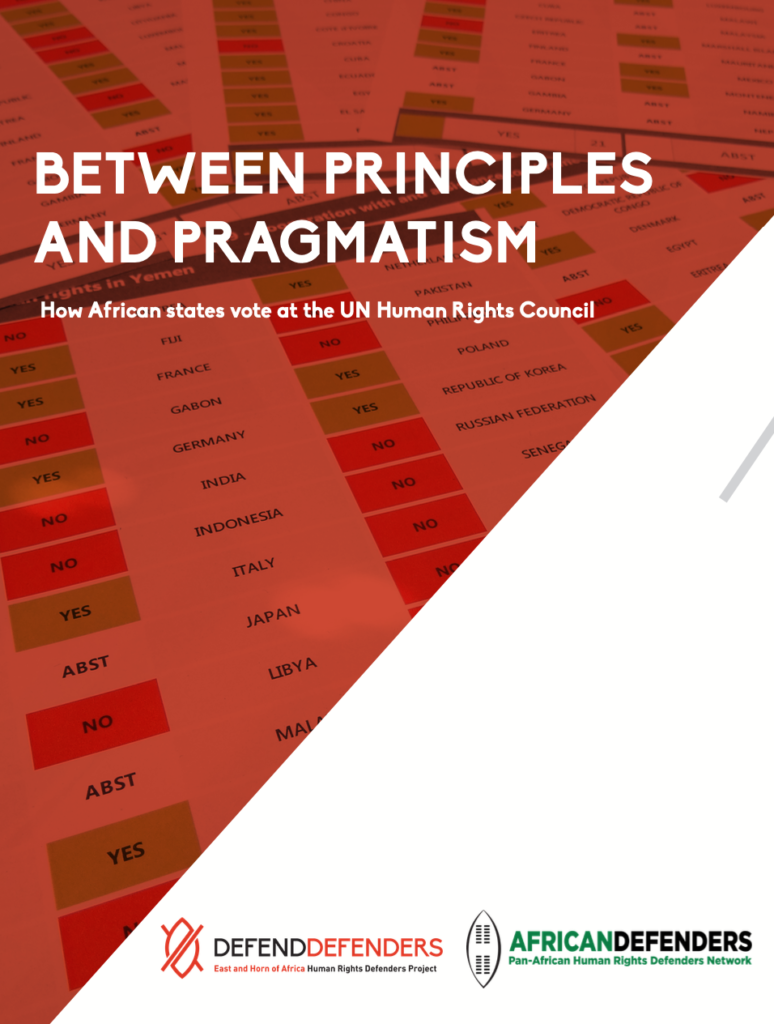
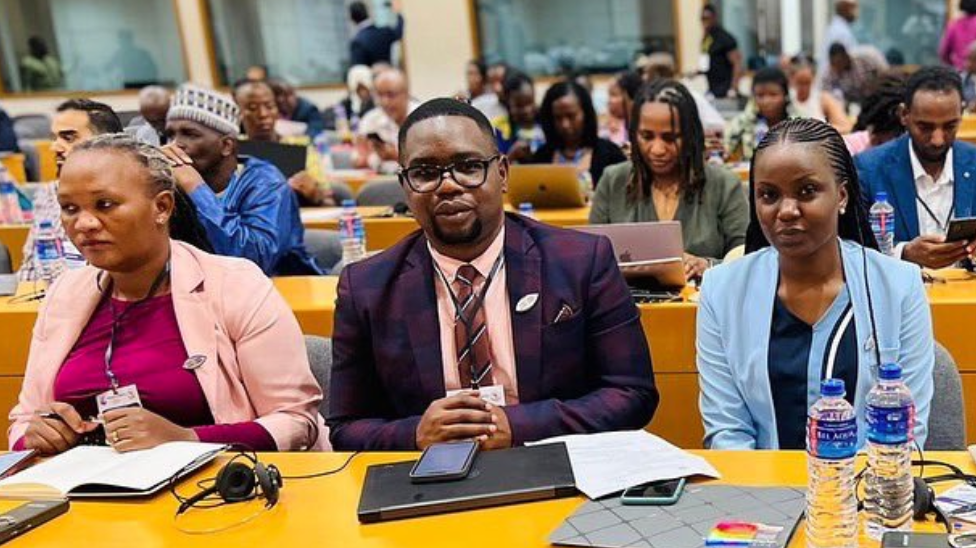
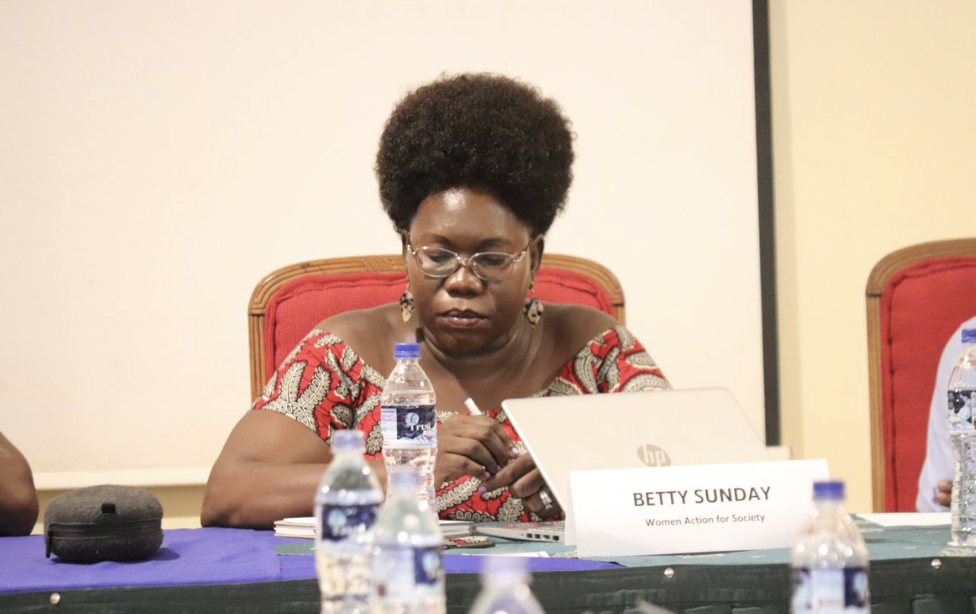
Despite our multipronged advocacy, we know that HRDs on the continent remain at risk from state and non state actors. This year, we further strengthened our flagship relocation program for at-risk HRDs – Ubuntu Hub cities , by launching another Ubuntu Hub City in Praia, Cape Verde, bringing the total number of Ubuntu Hub cities to eight, in six countries. Amongst them, we were able to extend emergency protection support to 40 HRDs this year, 27 male, seven female, and six organisations. We intend to continue strengthening this program, to ensure that HRDs on the continent can #StaySafeButNotSilent.
Additionally, protection of HRDs is collective responsibility involving all stakeholders, including national human rights institutions (NHRIs). AfricanDefenders and DefendDefenders in collaboration with NANHRI, Commission or Human Rights and Administrative Justice of Ghana and the Gender Centre for Empowering Development organised a two-day consultation in Accra Ghana from 5-6 December to lay the foundations for the collaboration between civil society organisations (CSOs) and NHRIs on a coordinated agenda for the protection and promotion of human rights in Africa, including the protection of HRDs and CSOs. The workshop brought together CSOs and NHRIs from across Africa to and facilitated a discussion on cooperation between NHRIs and HRDs based on concrete and practical experiences of regional mechanisms. The participants adopted the Accra NHRIs and HRDs Declaration which will serve as the cornerstone of partnerships and collaboration between NHRIs and civil society in the protection of civic space.
We continue to provide emergency protection support to HRDs at risk, helping them to temporarily readjust their lives considering emerging threats. This year, we received 503 such requests for support, of which 247 were approved. Of these, 155 were from male HRDs, 64 were from female HRDs, 20 were for HRD organisations, while 8 requests were from other persons. By the beginning of this month, 6 cases were still being assessed.
Many HRDs, especially exiled HRDs, struggle to adjust and adapt to the way of life in their host countries, and whenever possible, we strive to support this transition process. This year, under our Greatlakes project, we were able to provide 47 protection and professional empowerment grants to 43 HRDs- 31 Male, 12 female. This helped HRDs resettle, and for others, improve their language proficiencies by learning new languages in their host countries.
While such interventions may offer a lifeline for HRDs at risk, we know that the more consequential intervention is the continuous training and capacity building for HRDs to enable them to better assess day- to-day risks, monitor, document and report threats and to develop solidarity networks that are the first insurance against threats in their line of work.
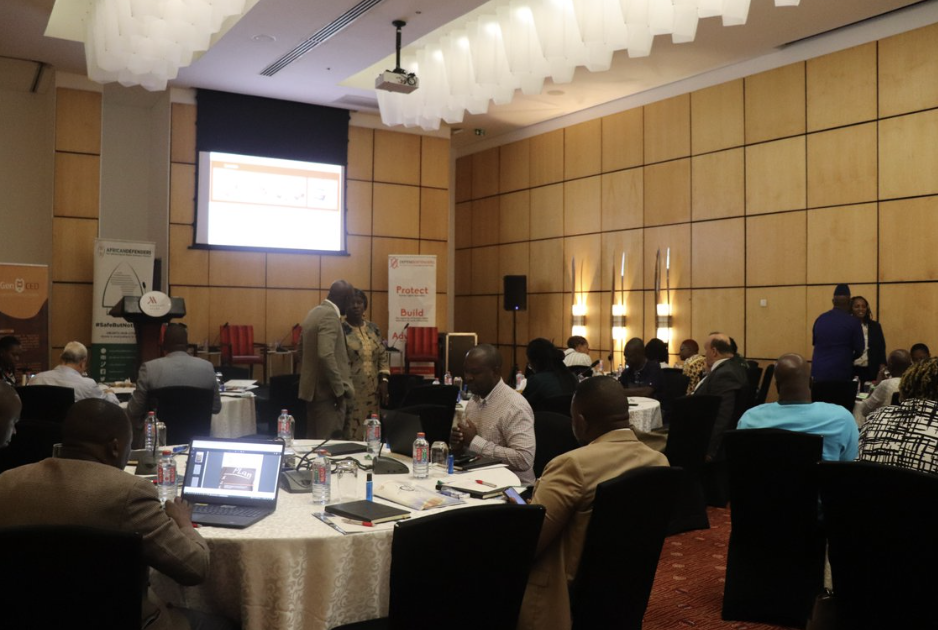
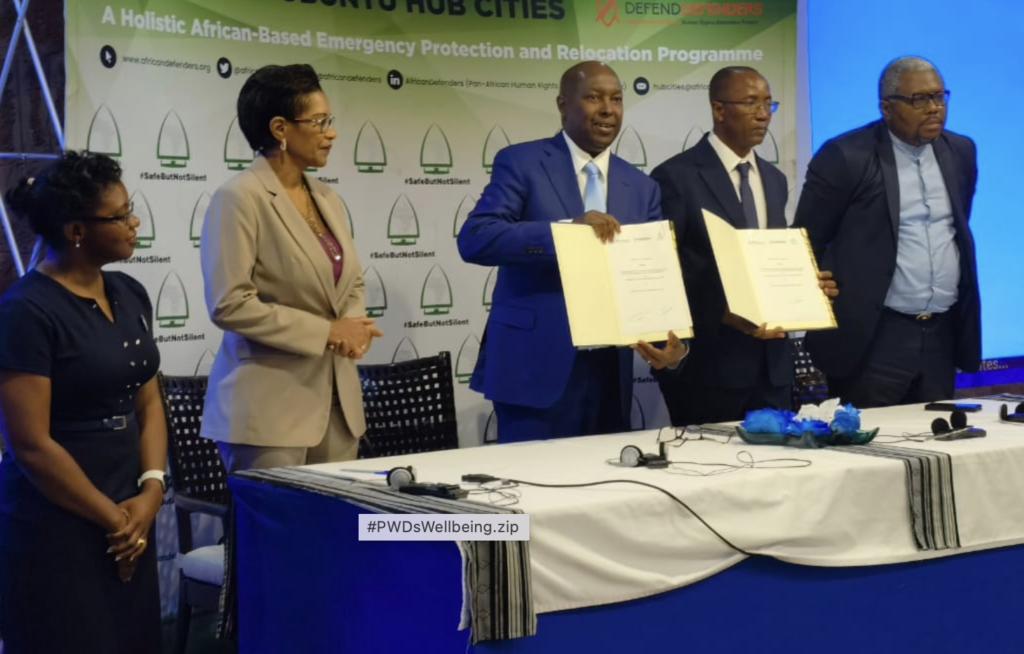
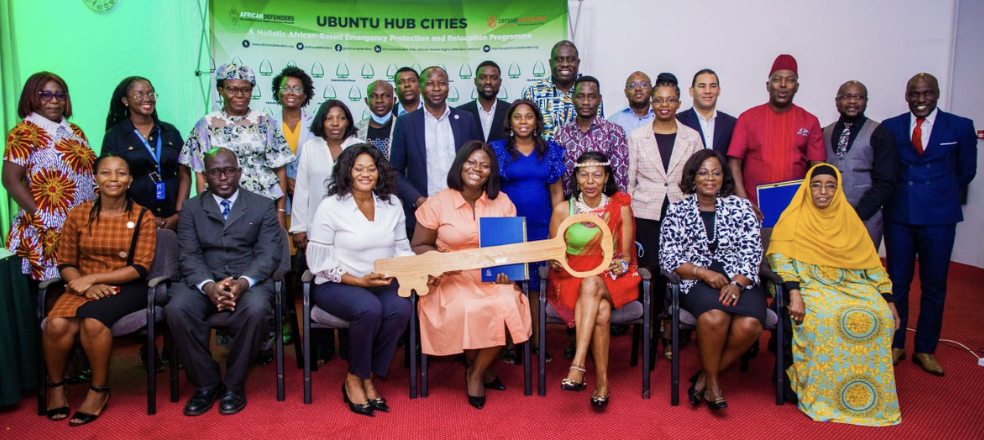
Considering this, from 7- 10 December, DefendDefenders and Tanzania Human Rights Defenders Coalition co-convened the twelfth edition of our annual flagship event ClaimingSpaces- Tactical tools for human rights defenders in Dar es salaam, Tanzania. This event seeks to equip HRDs with the requisite tactical tools and knowledge to enable them carry out their human rights work safely and effectively. Over 100 Tanzanian HRDs benefitted from this event, focusing on how to conduct effective advocacy at local, regional, and international levels, how to monitor, document and report human rights violations, and on how to assess and combat digital and physical security risks.
Additionally, throughout the year, we conducted 31 capacity building engagements that benefited 179 males, 204 females, and 10 non-conforming individuals. Due to the uniquely strenuous environments in which these HRDs work, DefendDefenders incorporated wellbeing sessions in our trainings, and organised seven stress-management training courses, seven group therapy sessions and one artistic therapy clinic. These benefited 150 HRDs, 49 male, 96 female, and five other people.
Threats to HRDs continue to manifest through digital platforms. We have observed an increasing pattern of governments using technology to tailor more sophisticated repressive tools, leading to a rise in cybersecurity threats against HRDs. In response, we devoted a hotline to address cybersecurity threats against HRDs. DefendersTech received and responded to 127 digital security incidents via the hotline.DefendDefenders followed these up by conducting several digital security trainings, benefitting a total of 230 HRDs, 127 female, 103 male.
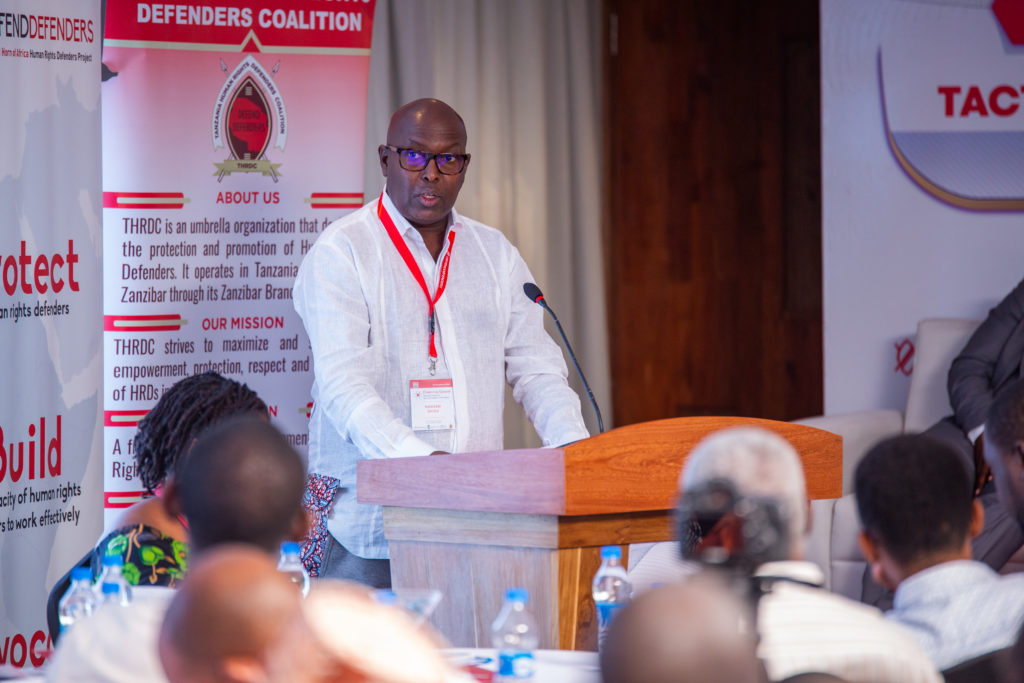
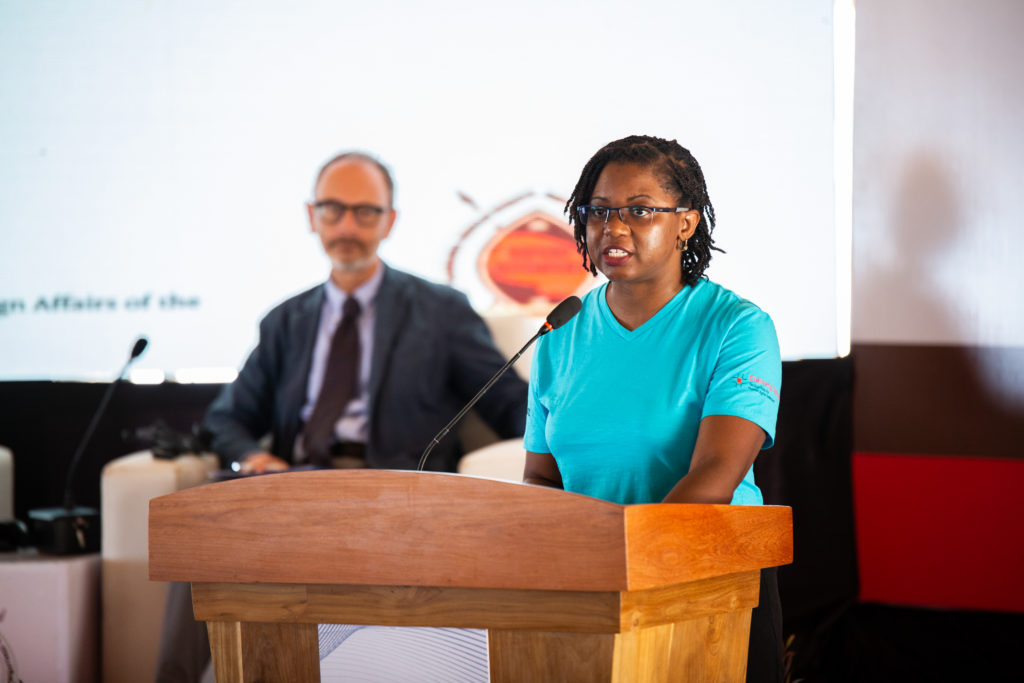
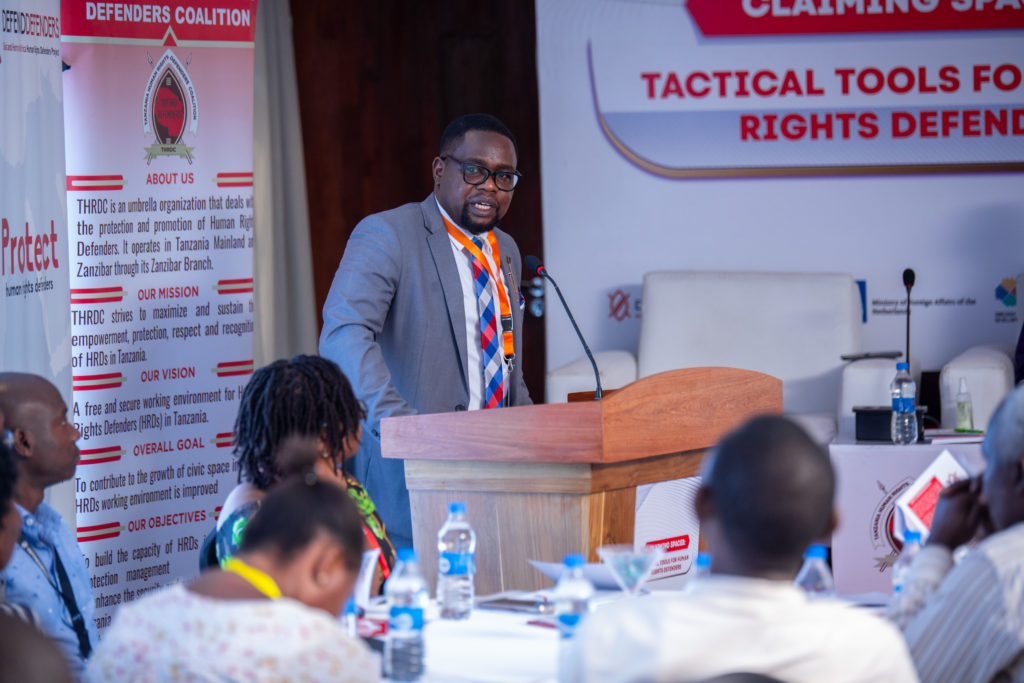
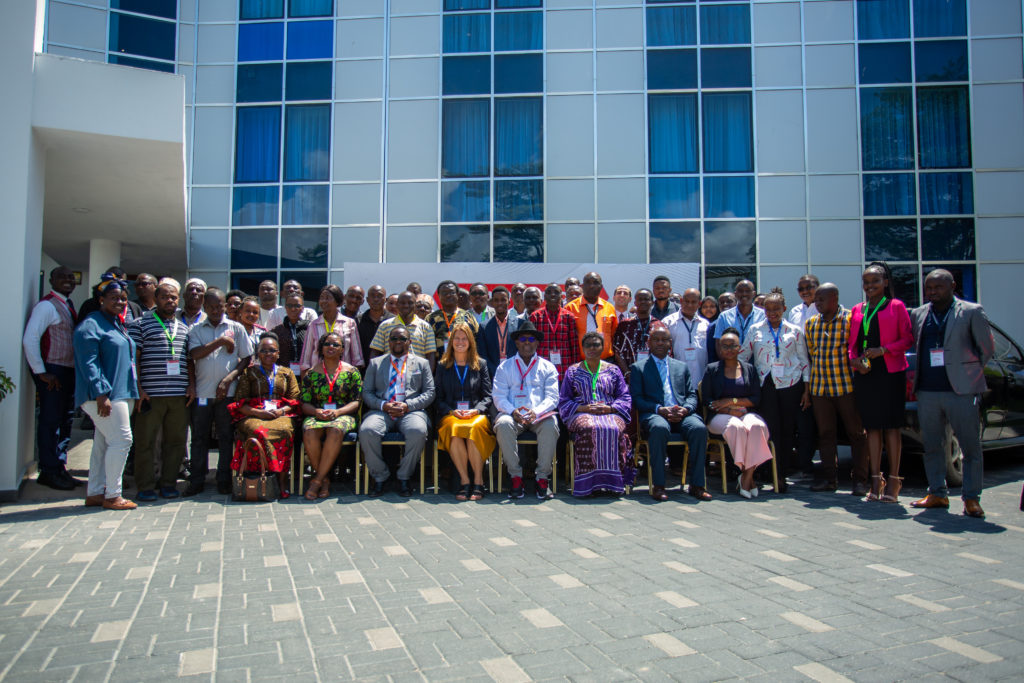
DefendDefenders continues to be deliberate about supporting and show-casing the work of minority HRD groups including women human rights defenders (WHRDs), and this year was no exception. We kicked off the year with an advocacy campaign – #SheDefends in the lead up to International Women’s Day to highlight the work and plight of environmental WHRDs, most of whom operate in rural communities with their voices rarely gaining mainstream attention.
During the wellbeing month of June, we highlighted the challenges facing HRDs with disabilities via the #PWDsWellbeing, with a view of shedding light on their unique situation. We followed that up with a campaign on artistic freedom, which sought to highlight the unique role of artists as HRDs and to draw attention to their unique threats and challenges. We wrapped up our advocacy efforts with the annual #16DaysOfActivism campaign against gender-based violence.

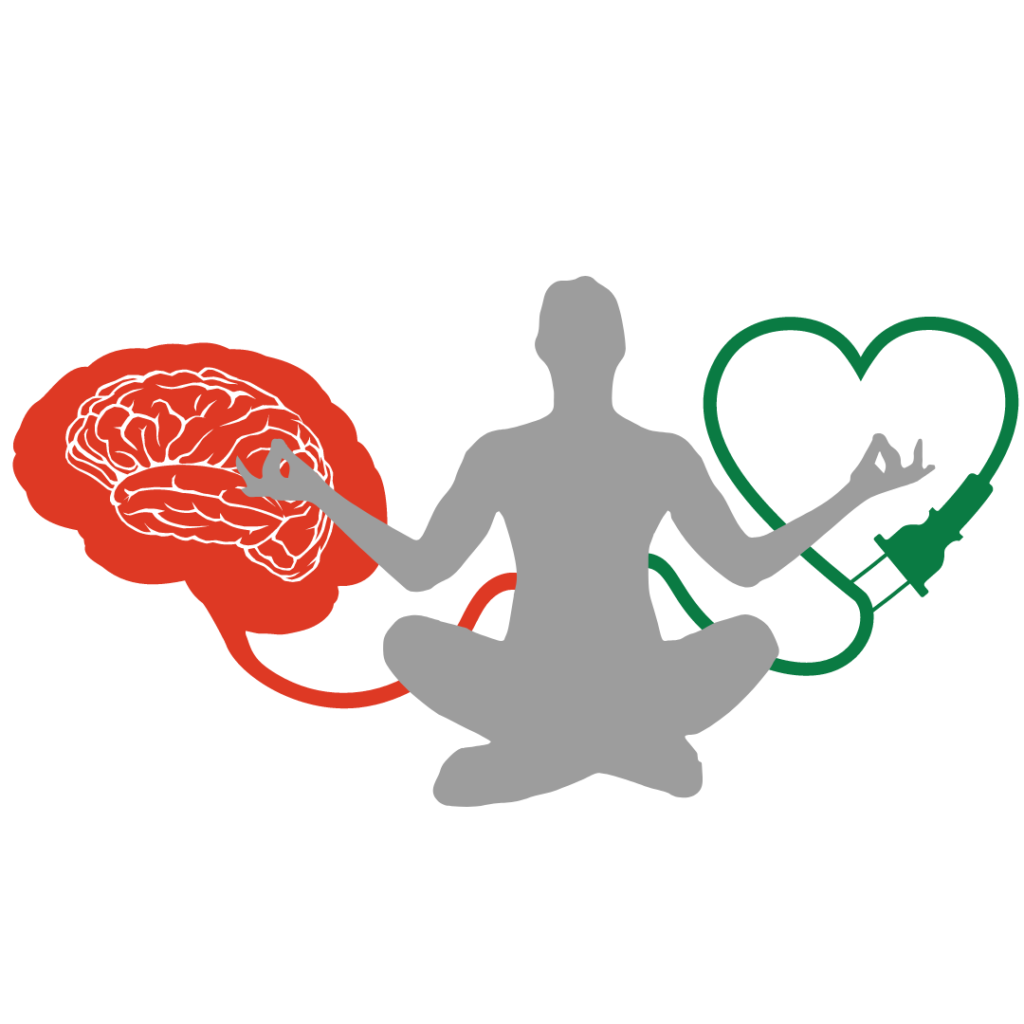
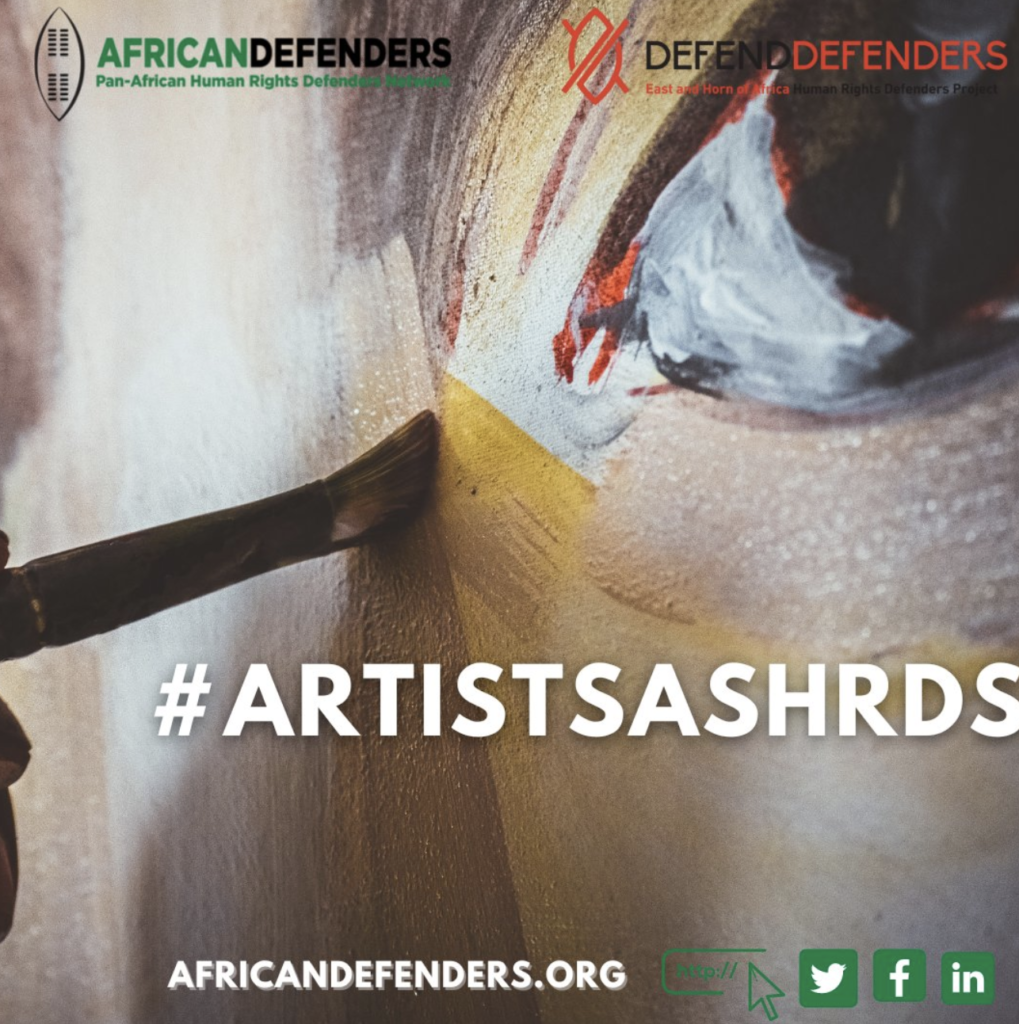
One of DefendDefenders’s strategic objectives is to strengthen the networking of HRDs across the continent. As such, in October, we hosted the 4th General Assembly of the East and Horn of Africa Human Rights Defenders Network, during which the network elected Kenya’s Kamau Ngugi as the Chairperson for the next five years. The network voted to include Democratic Republic of Congo as one of its focus countries.
Finally, as a steering committee member of the World Movement for Democracy, I took part in the the 11th world assembly of democracy in Taipei in October. I pointed out the spillover effects of Russia’s aggression on Ukraine as I continue to rally all democracy-loving citizens of the world to oppose the war and defend democracy against Putin’s threat.
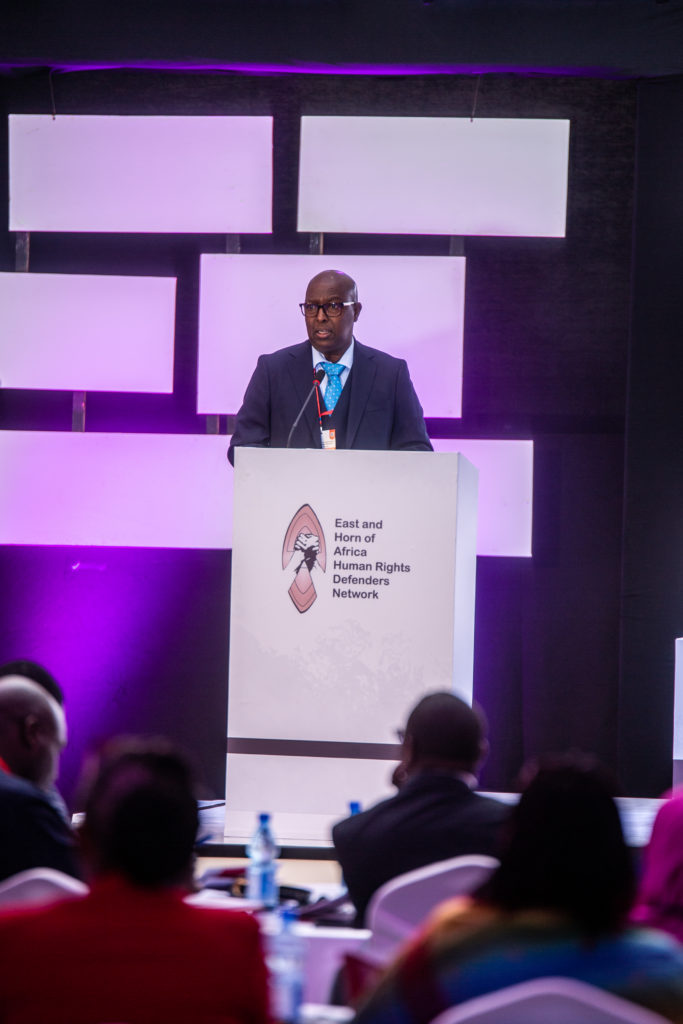
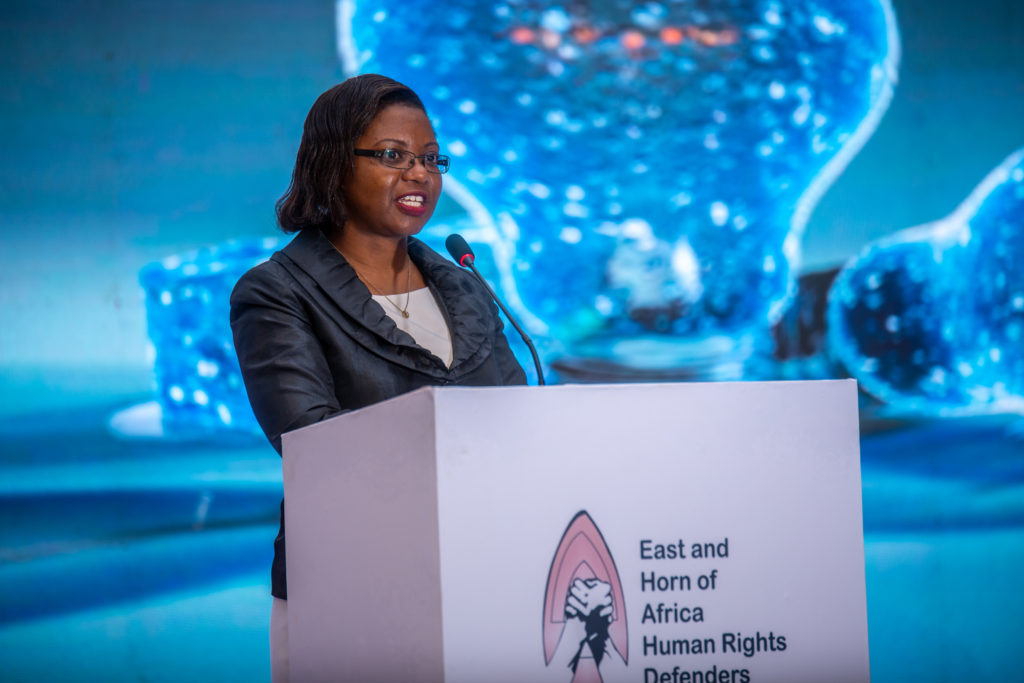
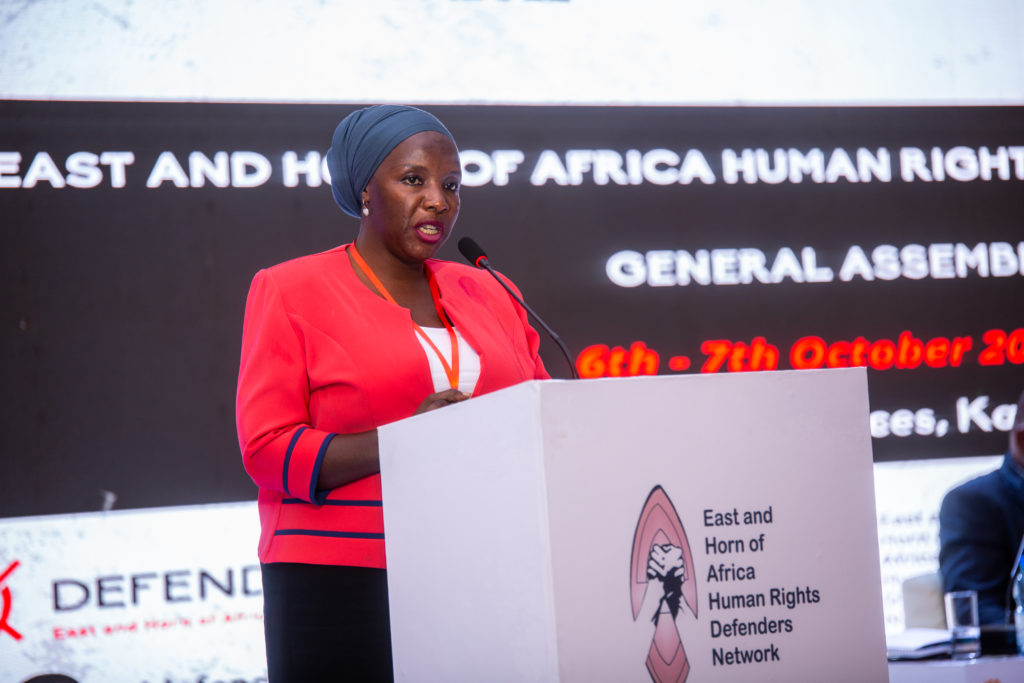
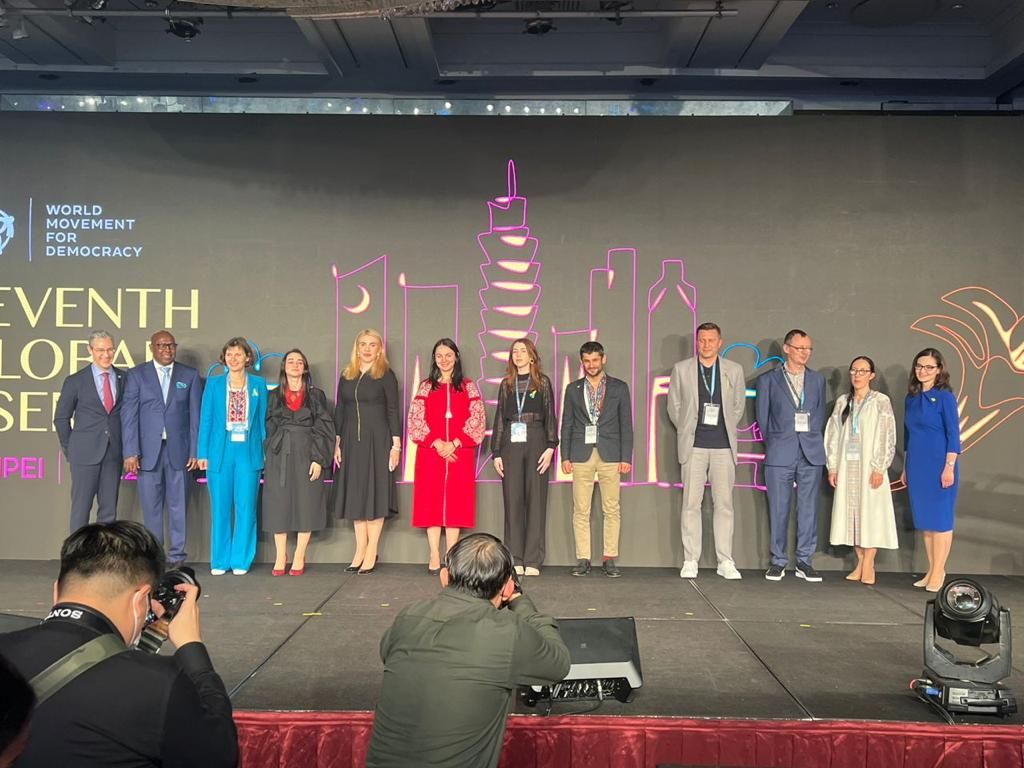
I extend my appreciation to DefendDefenders’ staff, national coalitions and subregional networks, and our development partners who have walked with and supported us in our endeavor to create a safe working environment for HRDs. We pledge to continue to strive to live up to our mandate and commitments in the coming years.
Our office will be closed on 16 December for the holidays and will reopen on 9th January 2023, but our emergency line +256 783 027 611 for HRDs at risk and [email protected] will remain operational throughout the holidays.
Happy holidays!
Hassan Shire,
Executive Director, DefendDefenders
Chairperson, AfricanDefenders
